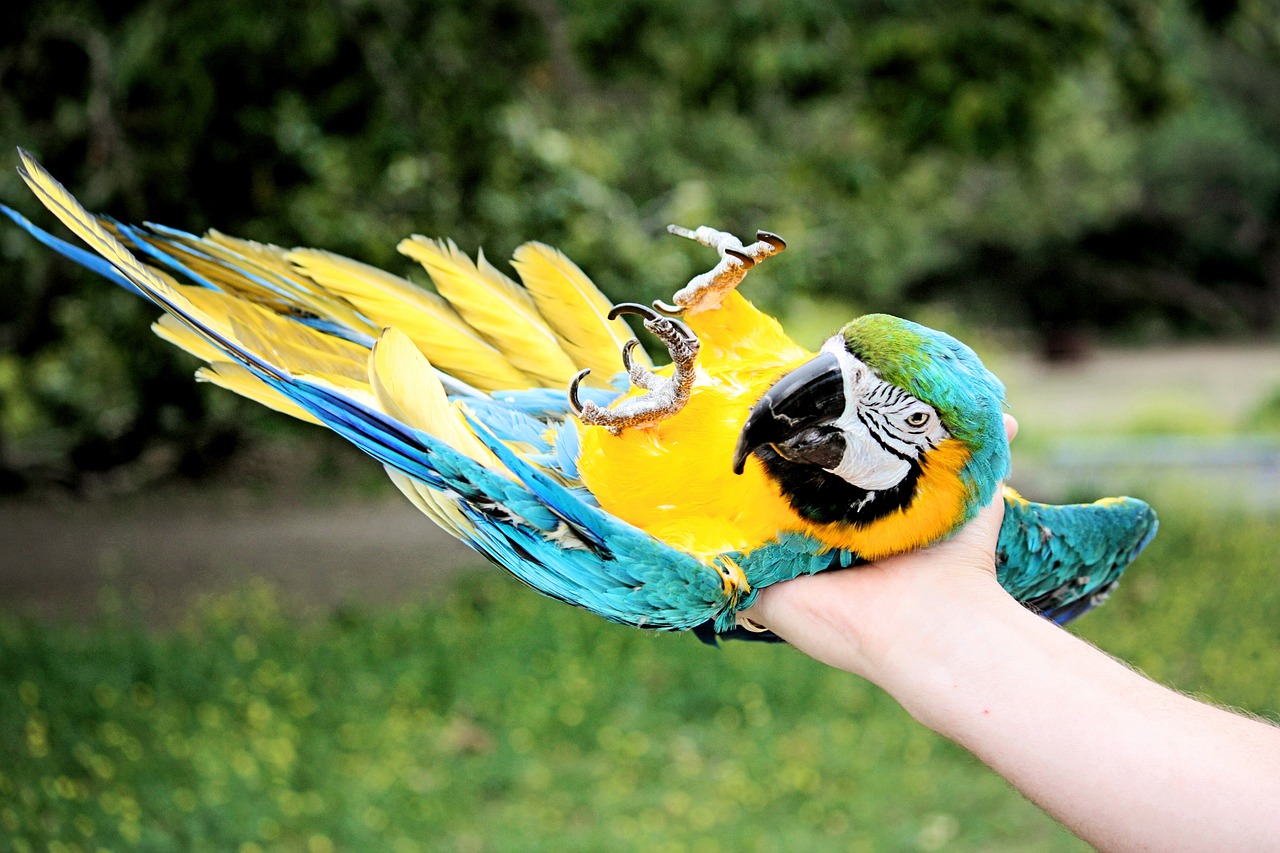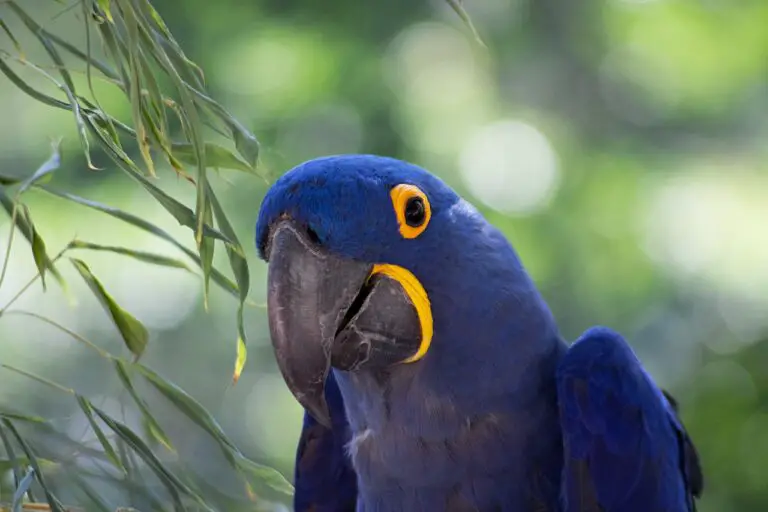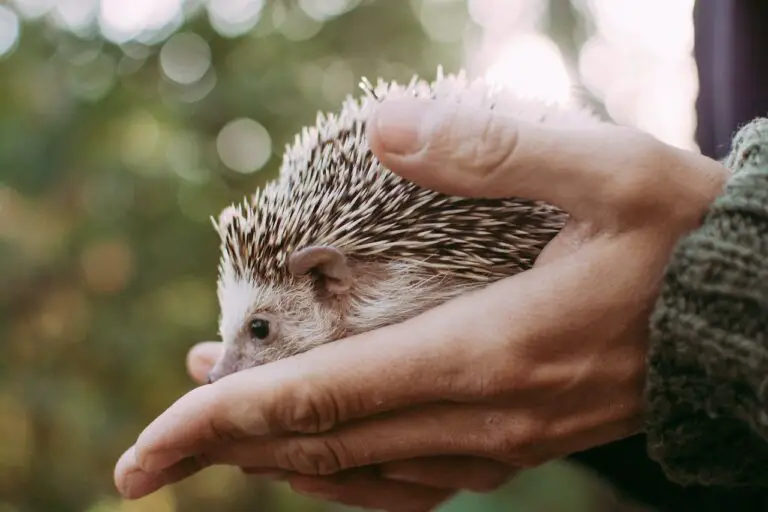Exotic Pet Benefits: Top Reasons to Own an Exotic Pet
Exotic pets are a popular choice for many individuals seeking a unique and unconventional companion.
While owning an exotic pet can come with certain risks and challenges, there are also a number of benefits that make it a rewarding and fulfilling experience.
In this article, we will explore some of the key benefits of owning an exotic pet and how they can positively impact your life.
1. Unique and Fascinating Companionship
One of the biggest draws to owning an exotic pet is the opportunity to have a truly unique and fascinating companion.
Exotic pets come in a wide variety of shapes and sizes, from colorful birds to slithering snakes to playful monkeys.
These animals often have distinctive personalities and behaviors that make them highly engaging and entertaining to observe and interact with.
2. Educational and Learning Opportunities
Owning an exotic pet can also provide a wealth of educational and learning opportunities.
Many exotic pets require specialized care and attention, which can be a great way to learn about animal behavior, biology, and ecology.
Additionally, caring for an exotic pet can teach responsibility and empathy, as owners must provide for the animal’s needs and wellbeing.
3. Mental Health Benefits
Studies have shown that owning a pet can have a number of positive mental health benefits, including reduced stress, anxiety, and depression.
Owning an exotic pet can be particularly beneficial in this regard, as the unique and fascinating nature of these animals can provide a sense of novelty and excitement that can improve mood and overall well-being.
4. Physical Health Benefits
Owning an exotic pet can also provide a number of physical health benefits.
For example, owning a dog can encourage daily exercise and promote cardiovascular health.
Similarly, caring for an exotic pet like a reptile can require physical activity like cleaning enclosures or providing food, which can help to increase physical activity and reduce sedentary behavior.
5. Opportunities for Travel and Adventure
Many exotic pets require specialized care and attention, which can make owning them a unique and rewarding adventure.
For example, exotic bird owners may have the opportunity to take their pet on trips or explore new environments with them.
Similarly, owning a monkey or other primate may provide opportunities for travel and adventure that are not available with more conventional pets.
6. Contributing to Conservation Efforts
Owning an exotic pet can also be a way to contribute to conservation efforts.
Many exotic pets are endangered or threatened in the wild, and owning them can help to support captive breeding programs and conservation efforts.
Additionally, owning an exotic pet can provide opportunities for education and advocacy around conservation issues.
7. Responsibility and Empathy Building
Owning an exotic pet can be a great way to teach responsibility and empathy.
Caring for an exotic pet requires a significant level of commitment and attention to detail, which can help to build responsibility and discipline.
Additionally, caring for an exotic pet can promote empathy and compassion, as owners must be attuned to the animal’s needs and respond to them appropriately.
8. Emotional Support
Exotic pets can also be trained as emotional support animals, providing comfort and companionship to those in need.
Many exotic pets have calming and therapeutic qualities, which can be especially helpful for individuals with mental health conditions or disabilities.
Drawbacks to Owning an Exotic Pet
While there are certainly benefits to owning an exotic pet, there are also a number of potential drawbacks that should be considered.
Here’s a list of the main ones:
- High cost – Exotic pets can be expensive to purchase and care for, particularly if they have specific dietary or environmental needs.
- Legal considerations – Owning an exotic pet may be illegal or require special permits in some areas. It is important to research the laws and regulations in your area before deciding to get an exotic pet.
- Risk to human health and safety – Some exotic pets may pose a risk to human health or safety, particularly if they are not properly trained or socialized. For example, some species of primates can carry diseases that can be transmitted to humans.
- Difficulty finding veterinary care – Exotic pets often require specialized veterinary care that may be difficult to find in some areas. This can make it more challenging to provide proper medical care for your pet.
- Long lifespan – Exotic pets often have longer lifespans than traditional pets, which means that they require a long-term commitment. This can be challenging for some owners who may not be prepared for the long-term responsibility of owning an exotic pet.
Laws and Regulations Regarding Exotic Pets
It is important to be aware of the laws and regulations regarding the ownership of exotic pets in your area.
Some states or municipalities may have strict laws or outright bans on certain types of exotic pets, while others may require permits or special licenses.
Choosing the Right Exotic Pet for You
Choosing the right exotic pet requires careful consideration of a number of factors, including your lifestyle, budget, and level of experience with animals.
It is important to research different species and their care requirements before making a decision, and to seek advice from experienced exotic pet owners or veterinarians.
Conclusion
Owning an exotic pet can be a rewarding and fulfilling experience, providing unique companionship, educational opportunities, and mental and physical health benefits.
However, it is important to be aware of the potential drawbacks and to carefully consider whether an exotic pet is the right choice for you.
FAQs
What are some common types of exotic pets?
Some common types of exotic pets include:
- Reptiles (such as snakes, lizards, and turtles)
- Birds (such as parrots and macaws)
- Rodents (such as sugar gliders and hedgehogs)
- Some species of primates
It is important to research the specific care requirements and legal considerations for each type of exotic pet before making a decision.
What are the potential risks of owning an exotic pet?
Owning an exotic pet can come with a number of potential risks.
Exotic pets can be expensive to care for and require specialized diets, enclosures, and veterinary care.
Additionally, some exotic pets may pose a risk to human health or safety, particularly if they are not properly trained or socialized.
You have to carefully consider these potential risks before deciding to own an exotic pet.
How can owning an exotic pet contribute to conservation efforts?
In some cases, owning an exotic pet can contribute to conservation efforts by supporting captive breeding programs or by promoting public awareness and education about endangered species.
However, it is important to ensure that any exotic pet is obtained legally and ethically, and that it is not taken from the wild or contributing to illegal trade.
What should I consider before choosing an exotic pet?
Before choosing an exotic pet, it is important to consider a number of factors, including your lifestyle, budget, and level of experience with animals.
It is important to research different species and their care requirements, as well as any legal considerations or permit requirements in your area.
Additionally, it is important to seek advice from experienced exotic pet owners or veterinarians before making a decision.
Can exotic pets be trained as service animals?
In some cases, exotic pets can be trained as service animals to assist individuals with disabilities or mental health conditions.
However, the specific requirements and legal considerations for service animals can vary depending on the animal and the situation.
It is important to research and consult with experts in service animal training before attempting to train an exotic pet as a service animal.
Peter Stones is the founder of Exotic Pets Place, the leading online resource for exotic pet care information.
With over 10 years of hands-on exotic pet ownership experience, he is deeply passionate about sharing his expertise to help others properly care for their unusual pets.
When he's not writing extensively researched articles or connecting with fellow exotic pet enthusiasts worldwide, you can find Peter at home tending to his own beloved menagerie of exotic animals.






![The Pros and Cons of Owning an Exotic Pet in College [+ FAQs], a man with a backpack](https://exoticpetsplace.com/wp-content/uploads/2023/06/The-Pros-and-Cons-of-Owning-an-Exotic-Pet-in-College-FAQs-a-man-with-a-backpack-768x512.jpg)
